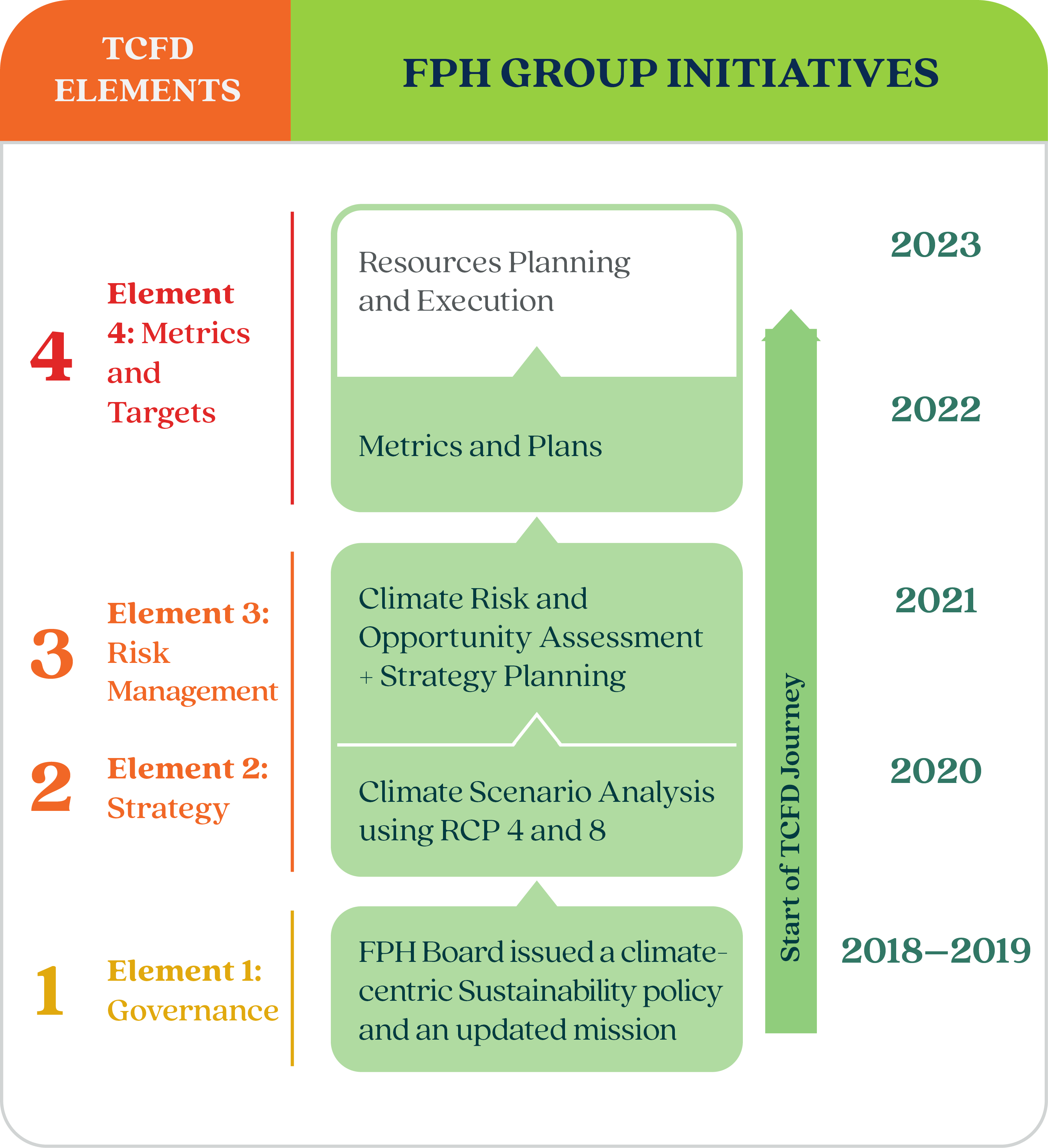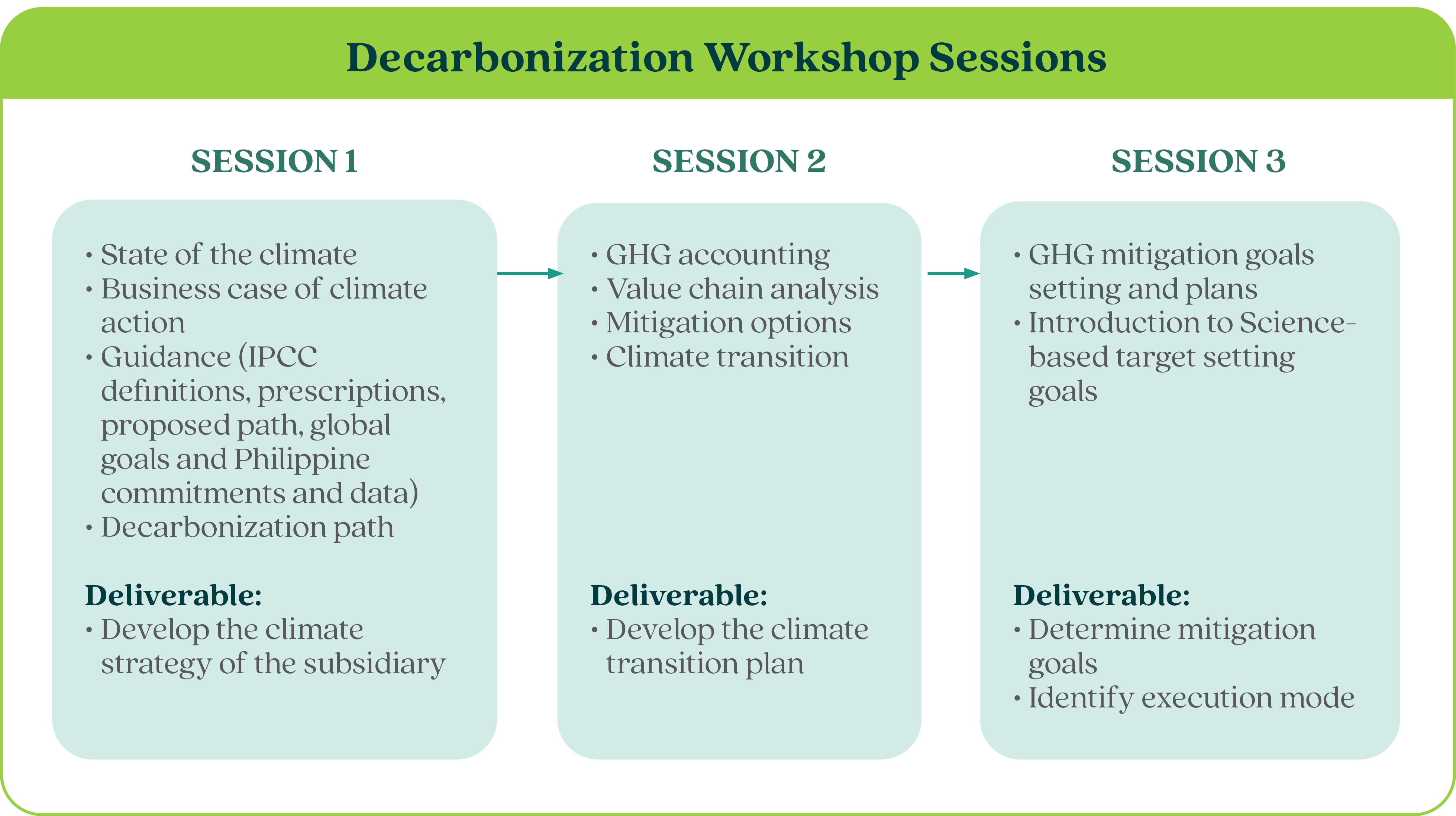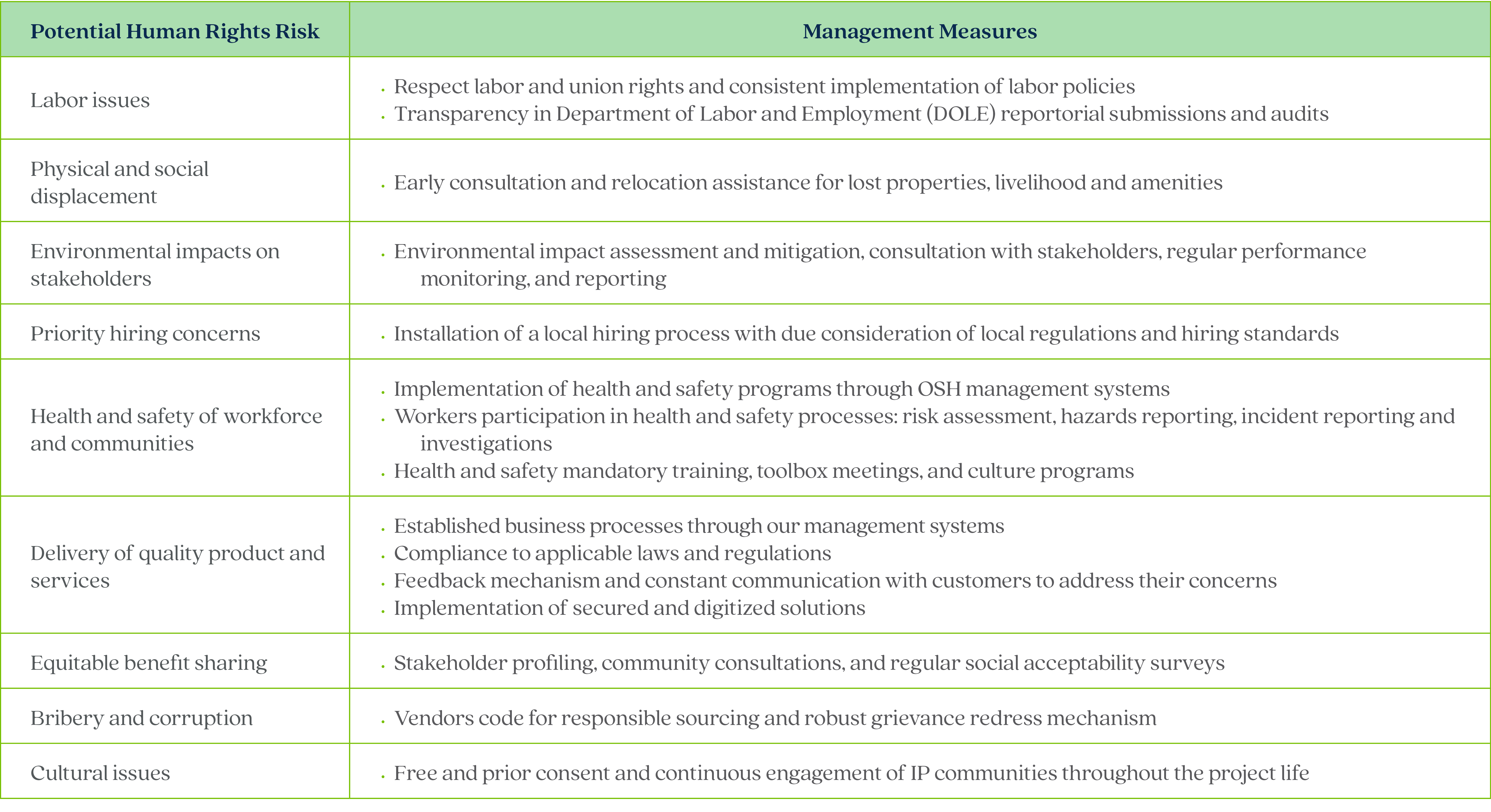Climate Change and Implementation of TCFD
In 2020, First Gen collaborated with FPH to start the Task Force on Climate-related Financial Disclosures (TCFD) prescriptions for the systematic analysis of climate risks and opportunities. We are on track with the TCFD road map disclosed in the 2021 Integrated Report. Overall, we complied with the following TCFD recommendations:
- climate-centric sustainability policy and updated mission in 2018-2019;
- climate scenario analysis in 2020;
- assessment of climate risks and opportunities in 2021; and
- formulation of decarbonization plans in 2022.

By 2022, First Gen participated in the decarbonization workshop for each subsidiary and head office departments conducted by the FPH Corporate Sustainability Group (CSG). It aimed to achieve the following:
- to define the subsidiary’s climate strategy aligned with the FPH mission; and
- to develop a preliminary climate transition plan to meet the subsidiary’s net zero goal. (subject to continuing refinements).
The figure below describes the workshop content and process:

To ensure the accuracy of our climate change plans, we examined the numerous climate principles, the related definitions, and the nuances of the IPCC recommendations and the Philippine climate obligations in its Nationally Determined Contribution (NDC). Our growing understanding of these decarbonization requirements enable us to be more cautious with our commitments. We understand that our mitigation plans are challenged by the current lack of commercial scale and affordable GHG removal technologies. Hence, we decided to continuously improve our plans as new technology solutions became available, subject to other factors dependent on the conditions of the group. The planning and workshop processes spanned four months, inclusive of the internal consultations and plan reviews by the parent company. First Gen’s consolidated climate strategies and decarbonization road map are further discussed on page 70.
Social Issues
In 2021, we identified social issues as emerging concerns across the world, further triggered by the pandemic and human rights issues. As such, we maintain our commitment to protect our stakeholders, and improve the inclusivity of our operations. In last year’s Integrated Report, we disclosed the results of the human rights impact assessment of our subsidiaries across their value chains. By 2022, we completed the remaining requirements of the human rights due diligence, namely: a) the formulation of management measures for the potential human rights issues that the subsidiaries identified in 2021; and b) the development of a Grievance Redress Mechanism.
Below is the summary of First Gen’s potential Human Rights risks and management measures.

In addition, we provided additional information for performance evaluation and monitoring. For each potential human risk, the following were identified: responsible group, baseline information, indicator, data verification, collector, and method of collection. In 2022, we prioritized embedding human rights topics under our Wellness Programs by expanding the subjects of learning sessions to cover social topics, such as promoting gender inclusiveness in the workplace and safe working spaces (identifying and addressing workplace bullying).
Recognizing that our operations may potentially harm others, we completed the Grievance Redress Mechanism (GRM) in 2022. The GRM is tailored to First Gen’s operating companies and project needs. This mechanism enables various stakeholders (employees, customers, host communities, and other affected entities) to raise their concerns about our business and operations, and seek resolution when they perceive a negative impact arising from our business activities. Ultimately, a GRM aims to provide remedy that will restore the situation of individuals and groups that have been harmed. The GRM accounted for the entire process, which included a variety of methods for gathering concerns, conducting an inquiry, and monitoring grievances. In 2022, we went beyond the human rights mechanism to protect our stakeholders by working on other factors that would promote a regenerative community. The details of our regeneration road map is discussed in the Progress on our Mission section.
